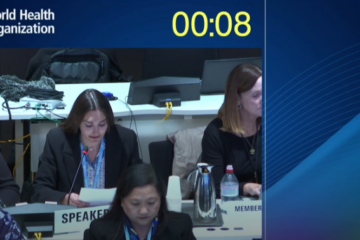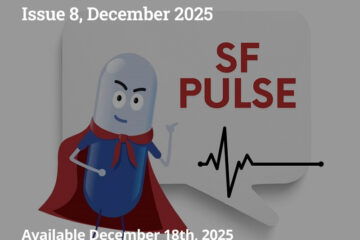PharmaCheck, a cutting-edge, inexpensive, portable tool capable of detecting poor quality medicines, has been selected by Scientific American as one of the science magazine’s “World Changing Ideas of 2013 — Ten ways science may jazz up our gadgets, help to solve our most intractable problems and save lives.”
In collaboration with U.S. Pharmacopeia’s (USP) Promoting the Quality of Medicines program, researchers from Boston University have developed the device, which has the potential to revolutionize detection of poor-quality medicines around the world.
While other methods to screen for substandard or counterfeit products in the field are currently available, they are limited in their ability to quickly quantify the actual amount of active ingredient in a medicine sample as well as to determine how quickly that active ingredient dissolves so it can work as intended when taken (known as a medicine’s “dissolution”).
PharmaCheck could change all this. Within minutes, a doctor, regulatory official or health worker can have critical insight about the quality of a medicine sample.
Poor-quality medicines – especially those drugs used to treat malaria, tuberculosis and HIV – are an insidious threat to patients and public health around the world. A poor-quality medicine could be one without enough active ingredients, which can lead to drug resistance. In other cases, a medicine may have the correct amount of active ingredient but may be of poor quality due to poor manufacturing practices, which can compromise the medicine’s ability to bring a clinical benefit to the patient.
In early 2014, Boston University researcher, Dr. Muhammad Zaman, developer of the technology, will conduct field tests on PharmaCheck through USP’s Center for Pharmaceutical Advancement and Training (CePAT) in sub-Saharan Africa, a region heavily threatened by poor quality medicines. USP opened CePAT in May 2013 in Accra, Ghana to help expand the number of trained experts and available tools to combat substandard and counterfeit medicines that threaten nations in Sub-Saharan Africa. The field tests conducted by Dr. Zaman in Ghana will include probes for an antimalarial and an antibiotic drug.
For more information, PharmaCheck is featured in Scientific American’s December issue.


